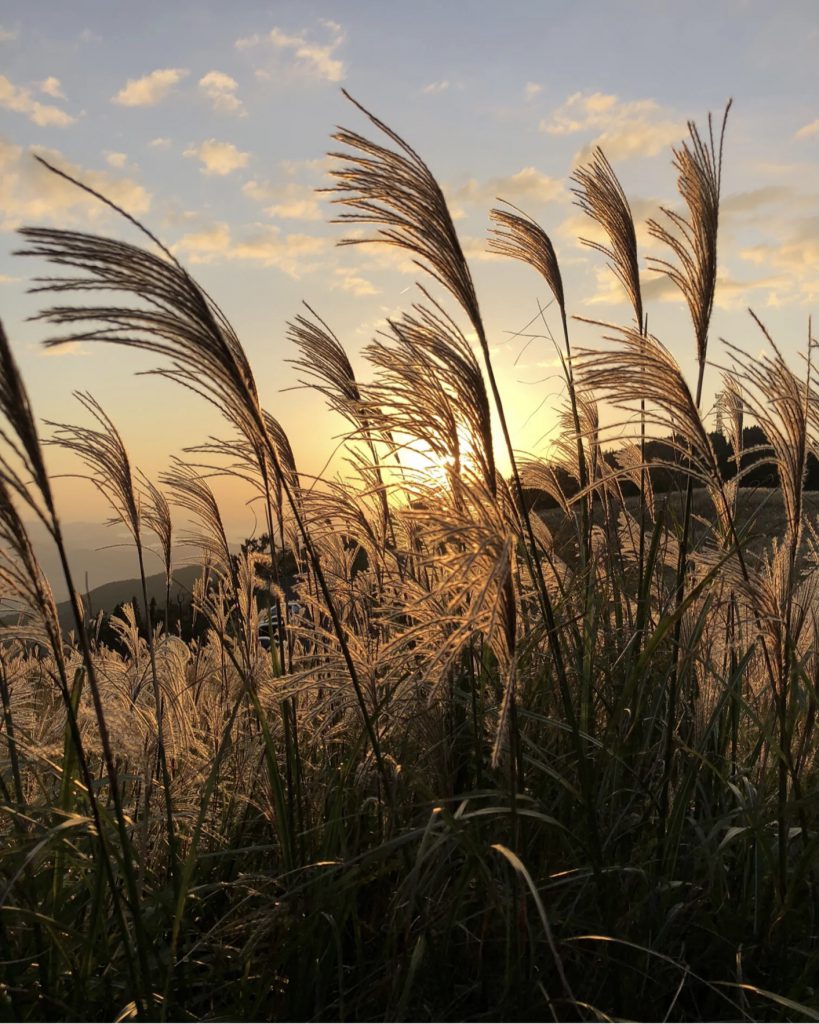
The pampas grass that sways in the autumn sun is a silver wave. The pampas grass swaying in the setting sun at dusk is a golden wave. No flower is as indispensable for autumn as Japanese pampas grass. But is this feeling transcending generations? An English translation of “Sendou Kouta” was taken up in an English seminar at the university. And then the interpretations about between “I” and “you” appearing in this song were divided, whether they were man and woman, or no, both were men who were boatmen. The teacher flatly thought that it was a lamentation between a man and a woman, so he was made aware of the gap between generations. In the same way, there is an enka called “Showa withered pampas grass” that sang withered pampas grass, but will those shabbily “Sakura” and “Ichiro” be transmitted to the younger generation today?
秋の陽光に照らされて揺れるススキは銀の波。夕暮れの落ちゆく太陽に照らされて揺れるススキは銀の波。ススキほど秋の風情として欠かせない草花はない。と言っても果たしてこの感覚は世代を超えての感覚だろうか。大学の英語ゼミで「船頭小唄」の英訳が取り上げられ、この歌に登場する「おれ」と「おまえ」は果たして男と女だろうか、いや船頭同士の男だよと意見が分かれたと言う。先生は頭から男と女の哀歌だと思っていたから、世代間のズレを思い知らされたそうだ。やはり枯れススキを歌った「昭和枯れススキ」と言う演歌があるが、あのうらぶれた「さくら」と「一郎」が今の若い世代に伝わるのだろうか。
